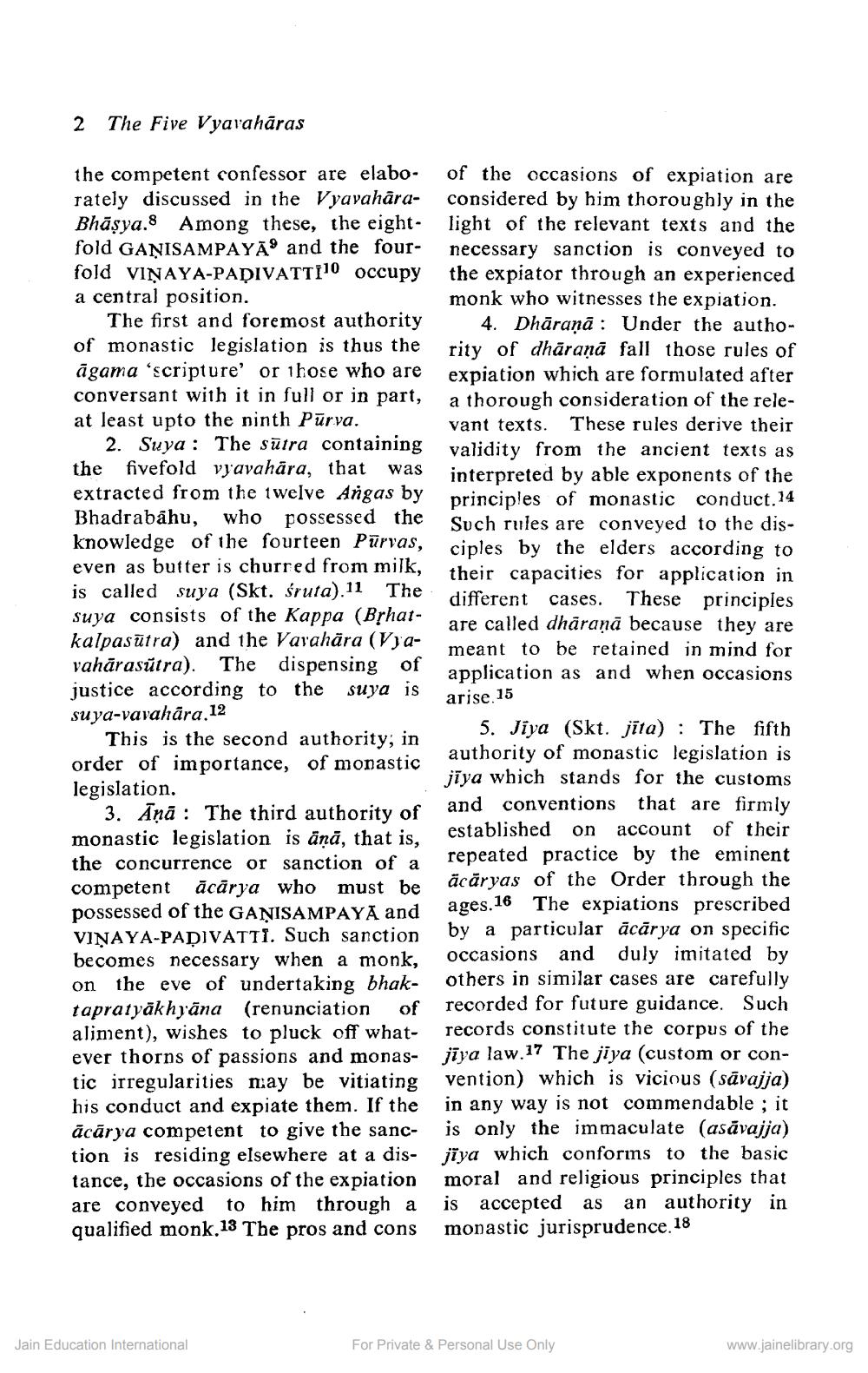________________
2
The Five Vyavahāras
the competent confessor are elabo- of the occasions of expiation are rately discussed in the Vyavahāra- considered by him thoroughly in the Bhāşya.8 Among these, the eight- light of the relevant texts and the fold GANISAMPAYA" and the four- necessary sanction is conveyed to fold VIŅAYA-PADIVATTI10 occupy the expiator through an experienced a central position.
monk who witnesses the expiation. The first and foremost authority 4. Dhāranā : Under the authoof monastic legislation is thus the rity of dhāranā fall those rules of āgama 'scripture' or those who are expiation which are formulated after conversant with it in full or in part, a thorough consideration of the releat least upto the ninth Pūrva.
vant texts. These rules derive their 2. Suya : The sūtra containing
validity from the ancient texts as the fivefold vyavahāra, that was
interpreted by able exponents of the extracted from the twelve Angas by
principles of monastic conduct.14 Bhadrabahu, who possessed the Such rules are conveved to the disknowledge of the fourteen Purvas, ciples by the elders according to even as butter is churred from milk,
milk,
the
their capacities for application in is called suya (Skt. śruta).11 The
different cases. These principles suya consists of the Kappa (Brhat
are called dharaņā because they are kalpasūtra) and the Varahāra (Vya
meant to be retained in mind for vahārasūtra). The dispensing of
application as and when occasions justice according to the suya is
arise. 15 suya-vavahára. 12
5. Jiya (Skt. jīta) : The This is the second authority; in
fifth order of importance, of monastic
authority of monastic legislation is legislation.
jīya which stands for the customs 3. Anā: The third authority of and conventions that are firmly monastic legislation is ānā, that is established on account of their the concurrence or sanction of a repeated practice by the eminent competent ācārya who must be äcāryas of the Order through the possessed of the GANISAMPAYA and
ages. 16 The expiations prescribed VINAYA-PADIVATTI. Such sanction by a particular ācārya on specific becomes necessary when a monk, occasions and duly imitated by on the eve of undertaking bhak- others in similar cases are carefully tapratyākhyāna (renunciation of recorded for future guidance. Such aliment), wishes to pluck off what- records constitute the corpus of the ever thorns of passions and monas- jīya law.17 The jīya (custom or contic irregularities niay be vitiating vention) which is vicious (sävajja) his conduct and expiate them. If the in any way is not commendable ; it ācārya competent to give the sanc- is only the immaculate (asăvajja) tion is residing elsewhere at a dis- jîya which conformns to the basic tance, the occasions of the expiation moral and religious principles that are conveyed to him through a is accepted as an authority in qualified monk. 18 The pros and cons monastic Jurisprudence."
Jain Education International
For Private & Personal Use Only
www.jainelibrary.org




